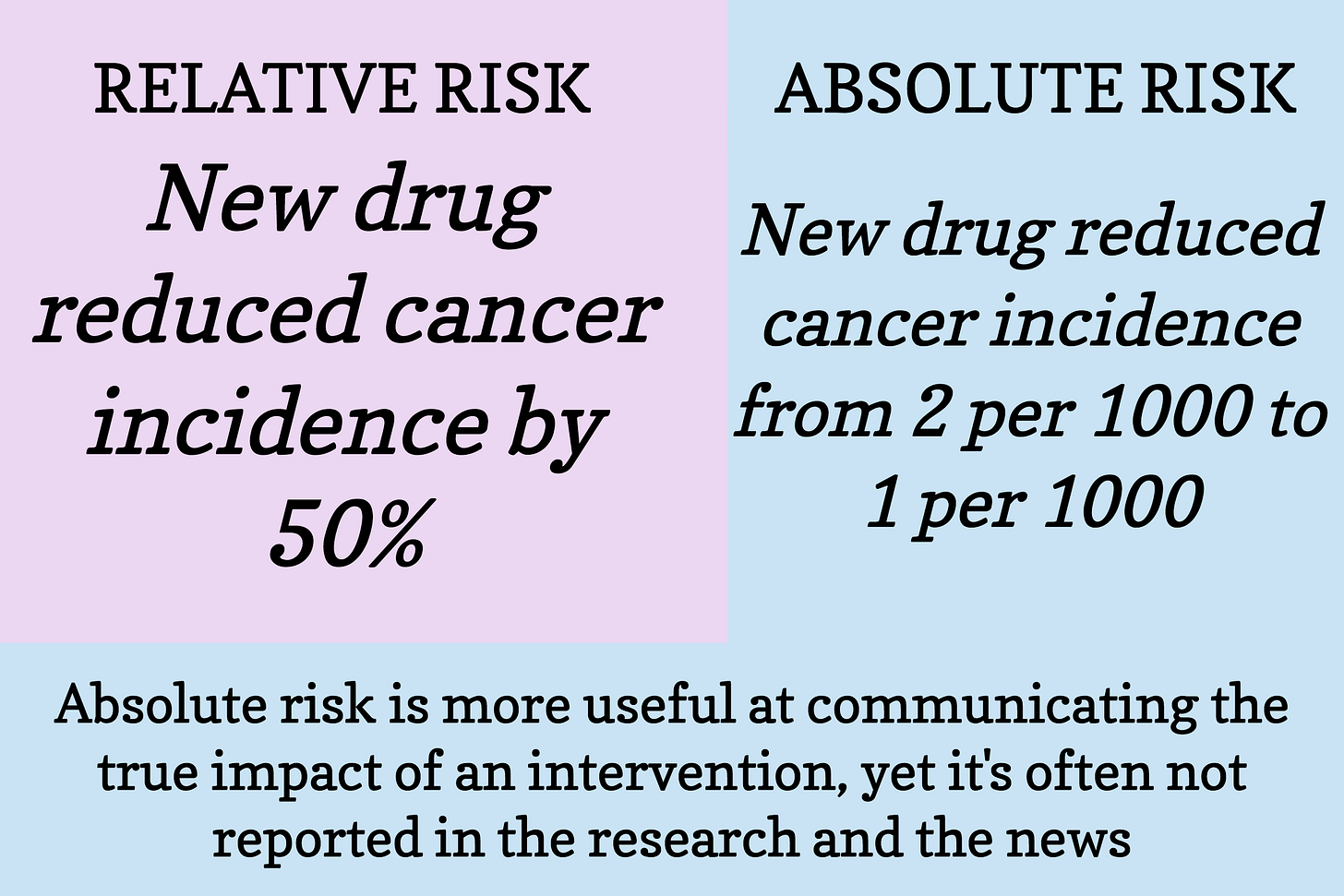Define Your Fears, Not Your Goals
The hard choices — what we most fear doing, asking, saying — these are very often exactly what we most need to do." - Tim Ferriss
📸 Photo of the Week
📘 A Quote I’m Reflecting On
“Being in a minority, even in a minority of one, did not make you mad. There was truth and there was untruth, and if you clung to the truth even against the whole world, you were not mad.” - George Orwell, 1984
🧬 Quick Dose of Science
The media and the news can be very misleading. Here is just one simple hypothetical example, from Peter Attia’s article on “Studying Studies”:
🌄 Overview: Fear Setting
This TED Talk by Tim Ferriss is a great introduction to Stoicism and offers a powerful journaling exercise that I've used to make decisions and get a different perspective on my own life. It's an extension of an important question: what's the worst thing that could happen? After reading this, actually take a piece of paper out and do this. It might change your life.
⚰️ Premeditatio Malorum
And I did find a quote that made a big difference in my life, which was, "We suffer more often in imagination than in reality," by Seneca the Younger, who was a famous Stoic writer. That took me to his letters, which took me to the exercise, "premeditatio malorum," which means the pre-meditation of evils. In simple terms, this is visualizing the worst-case scenarios, in detail, that you fear, preventing you from taking action, so that you can take action to overcome that paralysis. My problem was monkey mind — super loud, very incessant. Just thinking my way through problems doesn't work.
👻 Fear Setting
Tim created a written exercise to capture his thoughts on paper. It consists of 3 pages.
Page 1: What if I ...?
This could be whatever you fear, whatever is causing you anxiety. Whatever you’re putting off.
Make 3 columns:
1. Define: the worst things that could happen if you took that step (10-20)
2. Prevent: write down the answer to: What could I do to prevent each of these bullets from happening, or, at the very least, decrease the likelihood even a little bit?
3. Repair: if the worst-case scenarios happen, what could you do to repair the damage even a little bit, or who could you ask for help?
Page 2: What might be the benefits of an attempt or partial success?
You can see we're playing up the fears and really taking a conservative look at the upside. So if you attempted whatever you're considering, might you build confidence, develop skills, emotionally, financially, otherwise? What might be the benefits of, say, a base hit? Spend 10 to 15 minutes on this.
Page 3: The Cost of Inaction
This might be the most important page, so don’t skip it!
Humans are very good at considering what might go wrong if we try something new, say, ask for a raise. What we don't often consider is the atrocious cost of the status quo — not changing anything.
So you should ask yourself, if I avoid this action or decision and actions and decisions like it, what might my life look like in, say, six months, 12 months, three years? Any further out, it starts to seem intangible. And really get detailed — again, emotionally, financially, physically, whatever.
📝 Summary
Tim does it once a quarter, and here are some of his concluding remarks
Easy choices, hard life. Hard choices, easy life. - Jerzy Gregorek
The hard choices — what we most fear doing, asking, saying — these are very often exactly what we most need to do. And the biggest challenges and problems we face will never be solved with comfortable conversations, whether it's in your own head or with other people.
So I encourage you to ask yourselves: Where in your lives right now might defining your fears be more important than defining your goals?
To read this on my website, click here.




Great article, Baxter. "We suffer more often in imagination than in reality," - I believe this to be so true. I find MSM is very good at fear mongering but putting into perspective “define, prevent, repair” is a great strategy to overcome the negative.